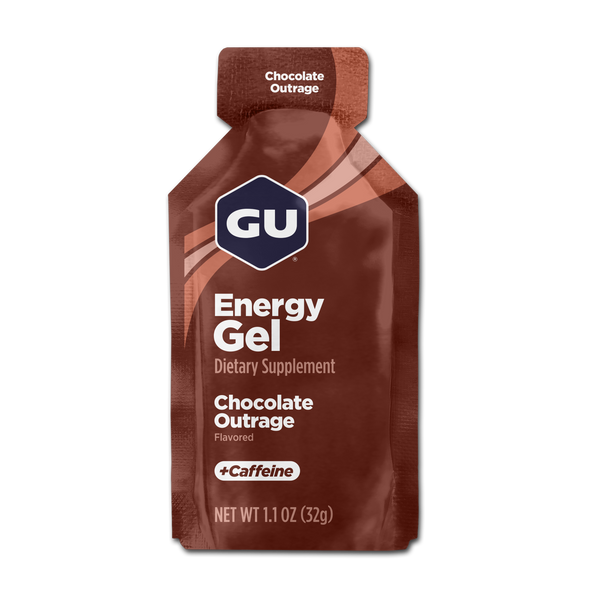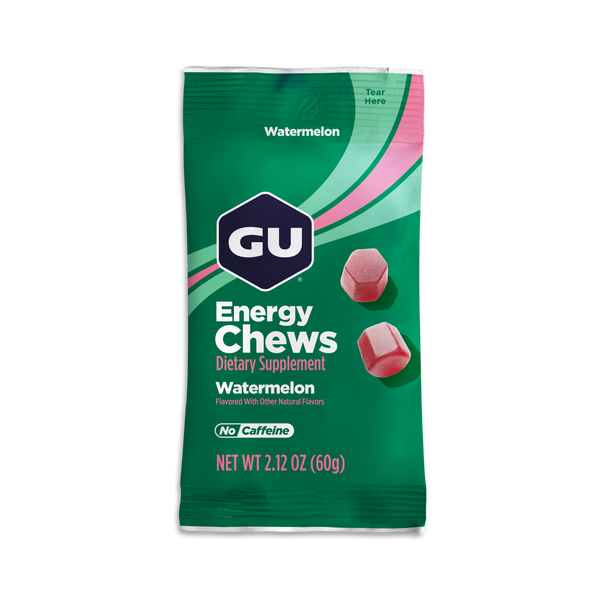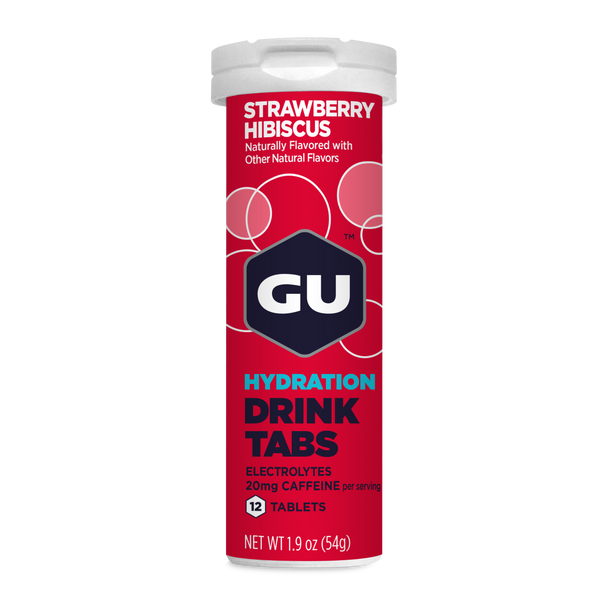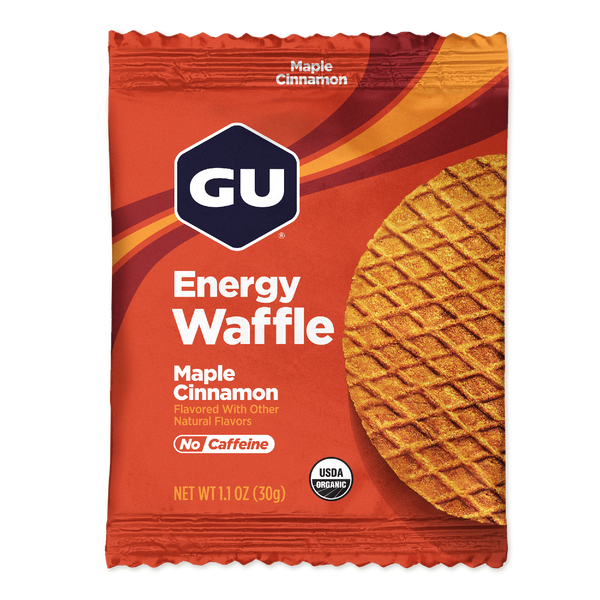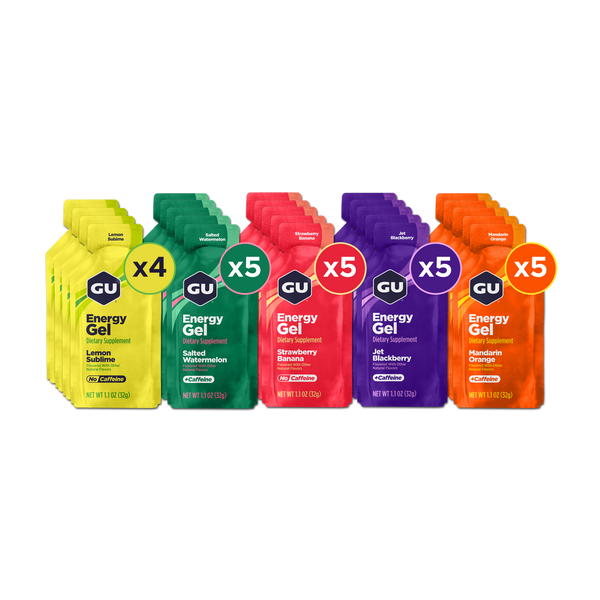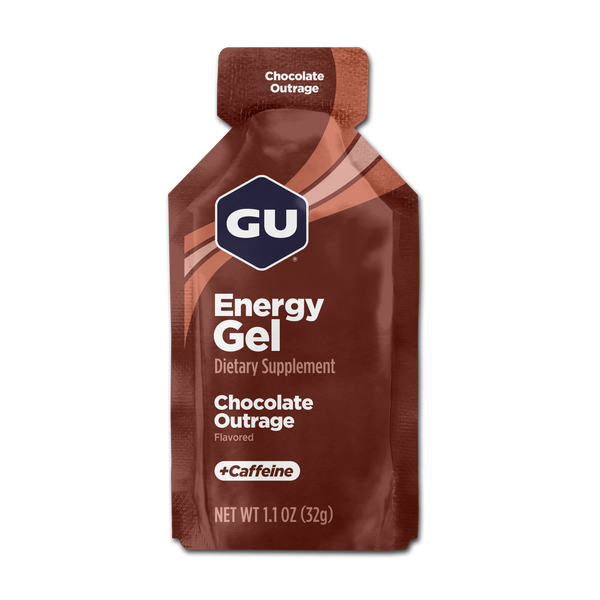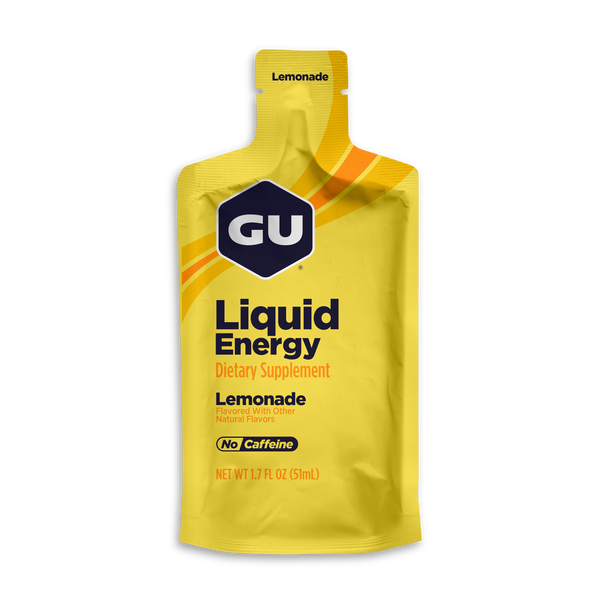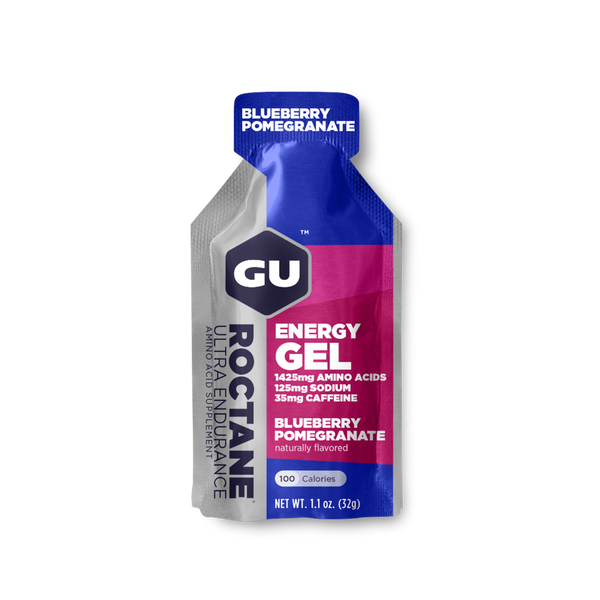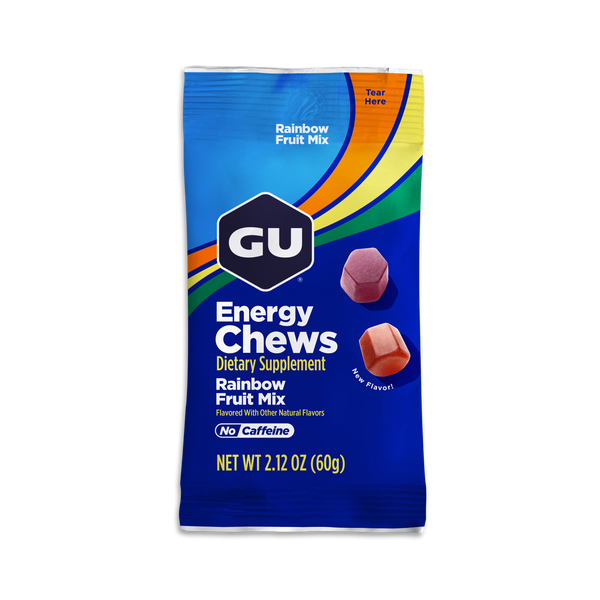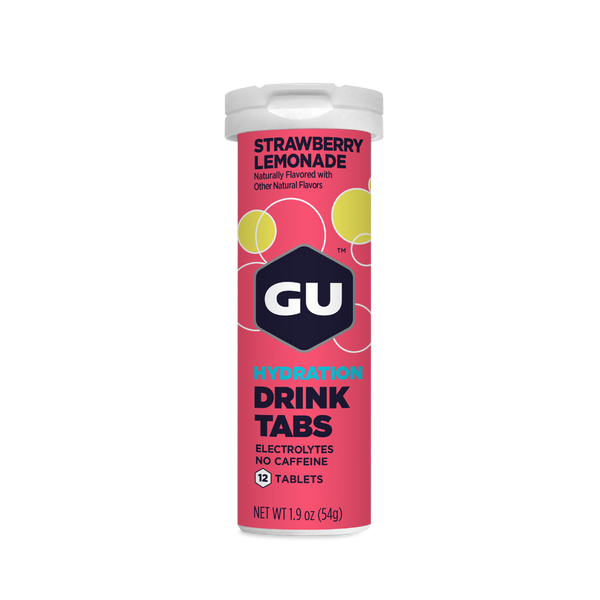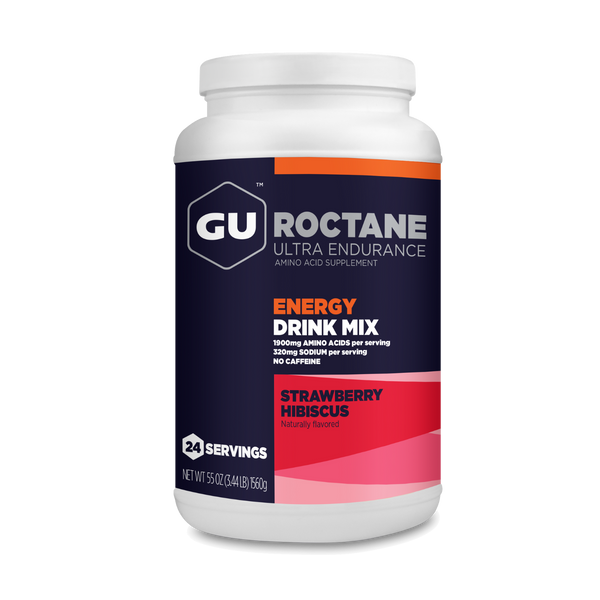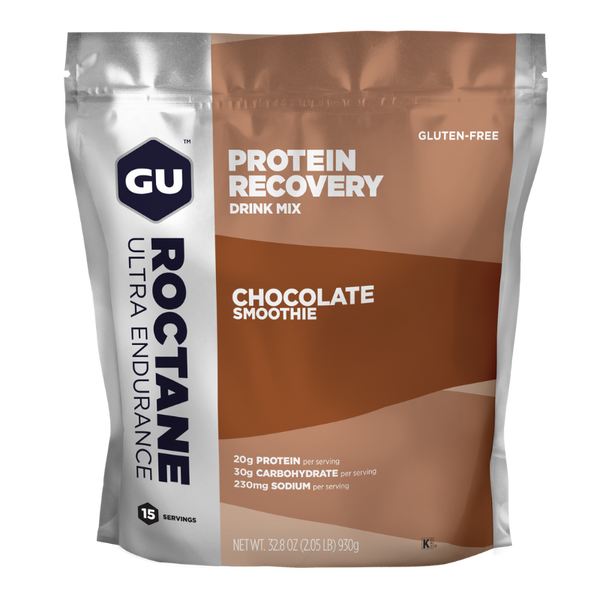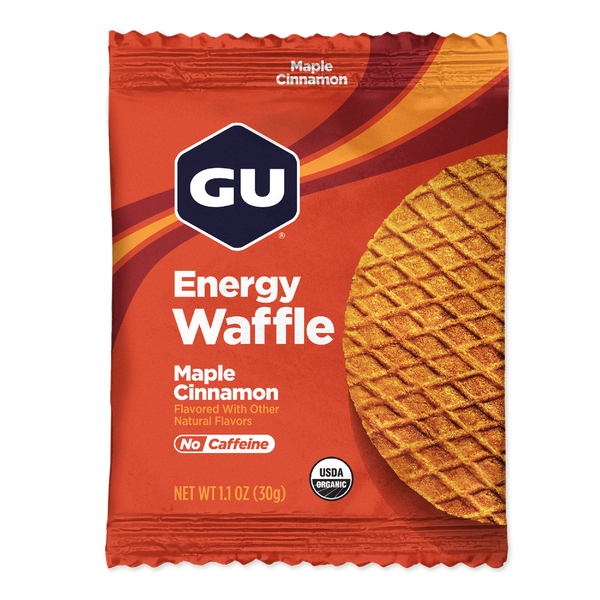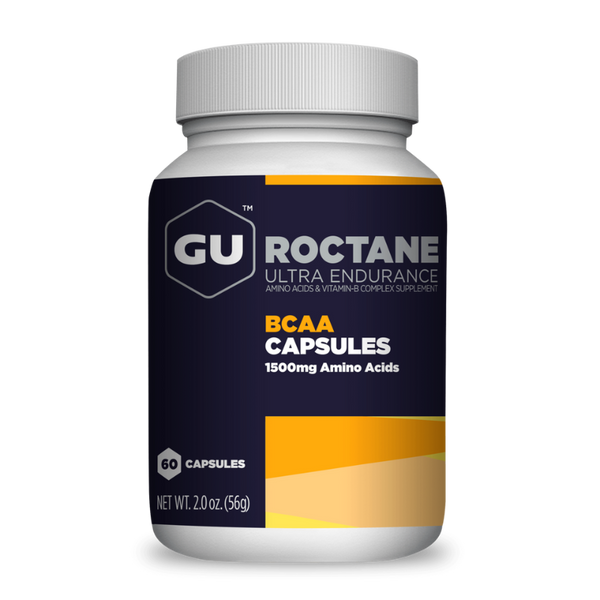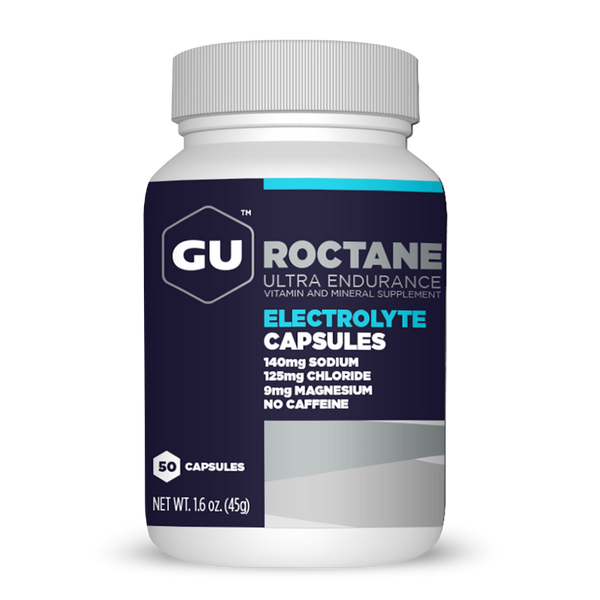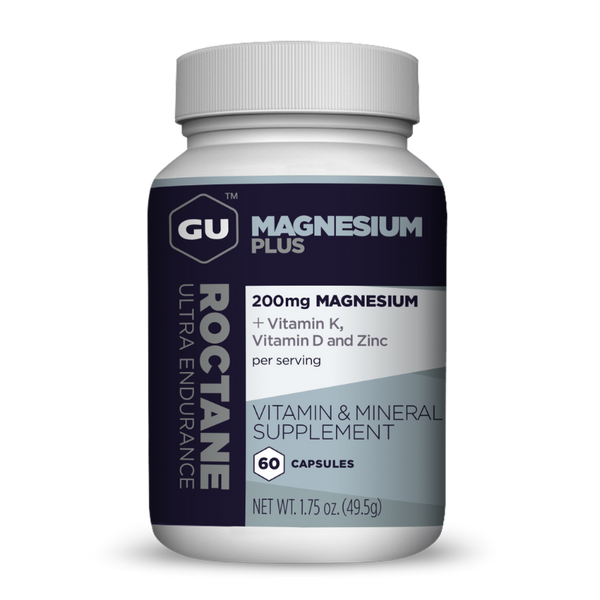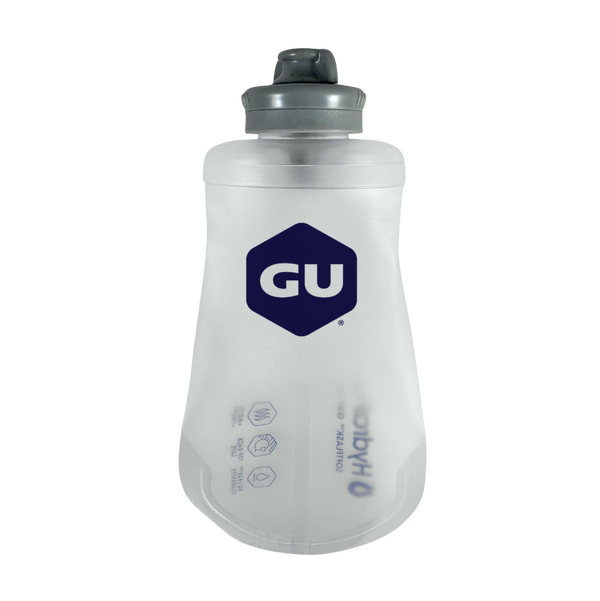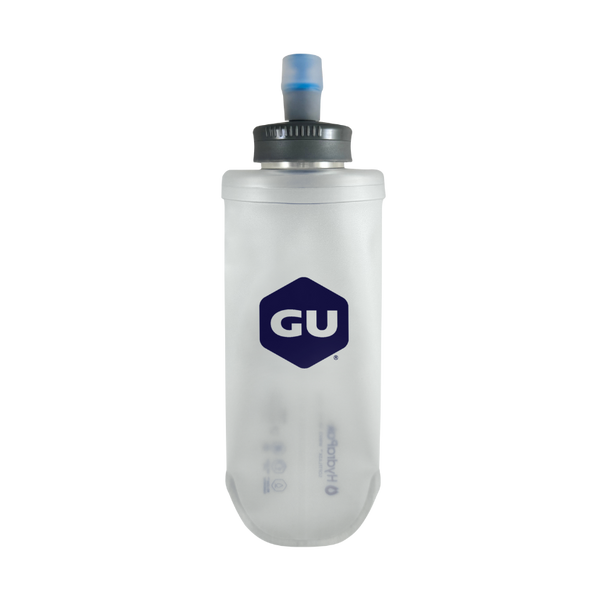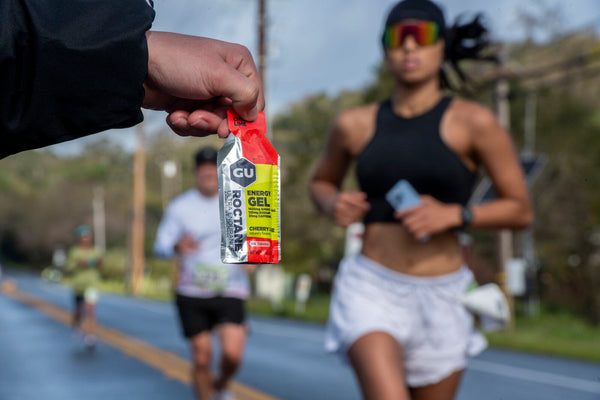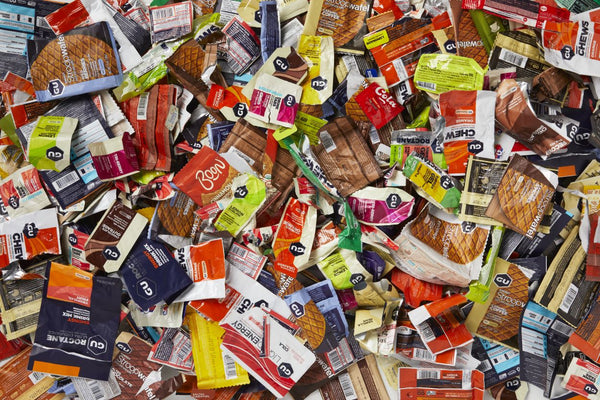What is a BCAA?
Amino acids are the building blocks of proteins, and proteins make up the structure of the body. Amino acids are either produced in the body (termed, “nonessential”), or they must be supplied from the diet (termed, “essential”).
GU Products with the Most BCAAs
BCAA Benefits
1. BCAAs Delay Fatigue During Prolonged Exercise
BCAAs have been found to inhibit the onset of both central and peripheral fatigue during exercise, so you can go stronger for longer. Peripheral fatigue (when your muscles get tired) is delayed because BCAAs are used as an additional energy source during prolonged exercise. Event after your body has used its glycogen stores, you can pull power from BCAAs in your muscles.
Central fatigue (when your brain gets tired) may also be delayed by BCAAs that block the amino acid tryptophan from getting into the brain. Tryptophan (the same tryptophan from your post-Thanksgiving drowsiness) is a precursor to the neurotransmitter serotonin, a central fatigue substance which produces feelings of relaxation and sleepiness.
2. BCAAs Improve Aerobic and Anaerobic Performance When Taken Regularly
Trained cyclists supplementing with 6g BCAAs for a week leading up to a graded exercise test to exhaustion achieved a 4% higher VO2max, including 13% higher VO2 at the lactate threshold (LT) and 6% greater power output at LT compared to placebo.. As any athlete knows, a a small increase in performance can mean the difference between a podium finish…or not.
In another study involving trained cyclists, researchers found that 10 weeks of BCAA supplementation (12g/day) resulted in a 19% increase in all-out sprint peak power and 4% increase in average power relative to body mass when compared to placebo. Importantly, the results of these studies indicate that BCAA supplementation can improve both aerobic exercise capacity and anaerobic performance!
3. BCAAs Fortify the Immune System
Intense, high volume training repeated over days and weeks can lead to fatigue, immune suppression, and overtraining if an athlete does not recover adequately between training bouts. Long term supplementation with 12g BCAA daily has been shown to improve the immune response to several weeks of intense endurance training in cyclists. A strong immune system aids in recovery and makes you less likely to get sick.
4. BCAAs Protect Lean Muscle
BCAAs have been shown to preserve muscle mass under extreme conditions characterized like ultramarathons and high altitude mountaineering. By providing supplemental BCAAs, the body is less likely to consume its own amino acid (protein) stores. Think of them as your muscle insurance policy!
5. BCAAs Promote Muscle Protein Synthesis
This is probably the number 1 reason weight lifters love BCAAs! Leucine is the most important of the three BCAAs for initiating muscle protein synthesis, which is necessary for muscle building. Dairy products, and whey in particular, are high in BCAA content, which is why you’ll find whey protein in our ROCTANE Protein Recovery Drink Mix!
6. BCAAs Reduce Exercise Induced Muscle Soreness and Damage
BCAA administration prior to and following exercise may reduce the severity and duration of delayed onset muscle soreness (DOMS), the painful sensation that lasts for several days after an intense or unaccustomed exercise bout. Studies have shown that BCAA intake reduces muscle damage in response to resistance training and endurance exercise. That means you can bounce back faster and have less muscle soreness between challenging workouts.

